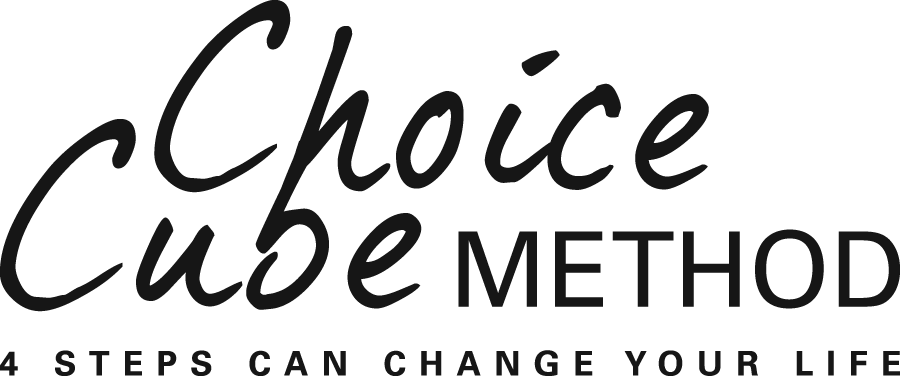Learner Or Self-Protector: Which Are You?
/Are You a Learner?
Being a “learner” is meant to be your normal way of life. When you are a learner, you can see both the negative and positive sides of reality—the big picture. You could say that you are an objective observer of what is going on. Also, learners have hope.
The creative, problem-solving conscious mind is in control when you are a learner. Instead of becoming inappropriately defensive, trying to avoid or control difficulties inappropriately, you stay open and curious. You feel rightly connected within yourself and to others, and to God, if you are a believer.
When faced with difficulties, your primary concern is to get to the truth with compassion for yourself and others. You want to resolve issues in a win-win fashion (Everyone feels fairly dealt with.). And you can express the best of who you are—your healthy-best-real self. Here’s summary of what it is like to be a learner.
Body of a Learner: Your body responses are relaxed, but alert.
Emotions of a Learner: Your emotions are positive (peace, acceptance/love, confidence/zest, satisfaction).
Mind of a Learner: Your mind reflects flexible and balanced thinking (You see both the negative and positive sides of people and situations--the big picture) and you can freely choose what you focus on.
Will/Desires of a Learner: You want to stay out of inappropriate avoid or control strategies and prefer to resolve difficulties win-win.
Behaviors of a Learner: With this mindset, you can base your reactions on a clearer picture of reality and on the best of who you are.
Are You a Self-Protector?
Like all humans, you can become a defensive “self-protector” when you feel unsafe or highly aroused, even if you are unaware of it. Feeling threatened, aroused, and becoming self-protective is a normal part of life for everyone!
The problem is when you become inappropriately defensive or get stuck in defensive self- protectiveness. Ah, there’s the problem. Inappropriate or repeated defensiveness can undermine and hurt you. It can even destroy your relationships.
When youbecome an inappropriate self-protector, to some degree, you ”split off" From yourself. You lose a clear picture of reality and your freedom of choice. All you want is to avoid discomfort and pain or get what you want and feel in control again. So you tend to act in ways that hurt you and others. For example, you may refuse to admit when you are wrong, run away, see yourself as better than others, act out sexually, isolate, or become unreasonably angry.
When you arestuck as a self-protector, you lose a clear picture of reality, and to some degree, your freedom of choice. You repeat inappropriate ways of thinking, feeling, and acting. But even worse, you train yourself to stay defensive and self-protective. You may even look be on the lookout for things to make you defensive.
Becoming a defensive self-protector is normal and adaptive when there is a genuine threat to your safety and wellbeing or to the safety and wellbeing of those you love. Going in to self-protect is maladaptive and hurtful if:
1. You go there because of an imagined threat.
2. You go there and get stuck there.
The subconscious mind rules your defensiveness. When you become self-protective, instincts or habit patterns stored in your sub-conscious mind take over. If you don’t know how to recognize when this happens and do something different, the habit can take control of you.
You can become rigid, confused, or all mixed-up. It’s almost impossible to see the whole truth--the big picture-- when you are in self-protector mode. So, you refuse to discuss the issue and leave the room, get angry, or pout in silence.
At this moment, you are on autopilot mindlessly reacting instead of responding appropriately. If you are stuck as a self-protector, you are like a CD. Just like a CD, when activated, you play the same reactions over and over, relating to others in the same old hurtful ways.
If you pay attention to how you are reacting, you’ll find that your body is stressed and that you have negative emotions such as pride, anger, fear, disgust, or the craving to be right.
If you pay attention to what you are saying to yourself, you will find that the thoughts and pictures in your mind are also negative. You may be thinking, Just shut up. Leave me alone. I don’t care what you say. You’re jerk. You don’t know anything.
Finally, if you check what you want, your will or desire may be to get even, be right, or get away. The following is a summary of your reactions.
Body of a Self-Protector: You are tense, agitated, or collapsed.
Emotions of a Self-Protector: You are emotionally negative.
Mind of a Self-Protector: You are mentally off-balance. Things seem all good or all bad. Or you are double minded, helplessly swinging back and forth between seeing things as all good or all bad.
Will/Desires of a Self-Protector: You want to avoid or control people, situations, and problems in inappropriate ways.
Behaviors of a Self-Protector: Your behaviors tend to be impulsive, compulsive or you may seem paralyzed--unable to act.
Is staying a learner worth the effort? Yes. Indeed it is! Staying a learner often requires effort, but being a learner leads to integration and growth, emotional and physical health, and fulfilling relationships.
I invite you to take the Choice-Cube Method Self-Assessment Quizto find out whether you are more in shadow—a self-protector--or in more in light—a learner.


